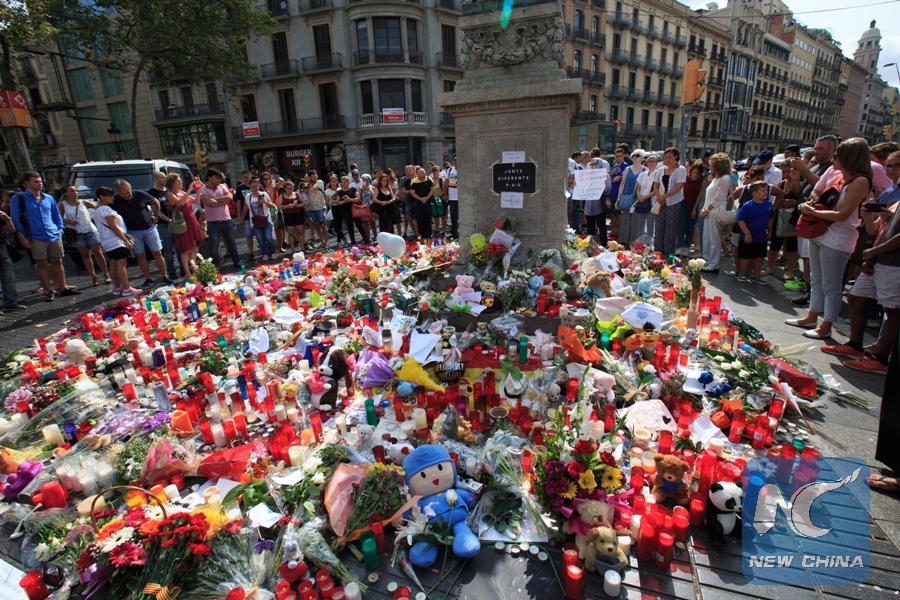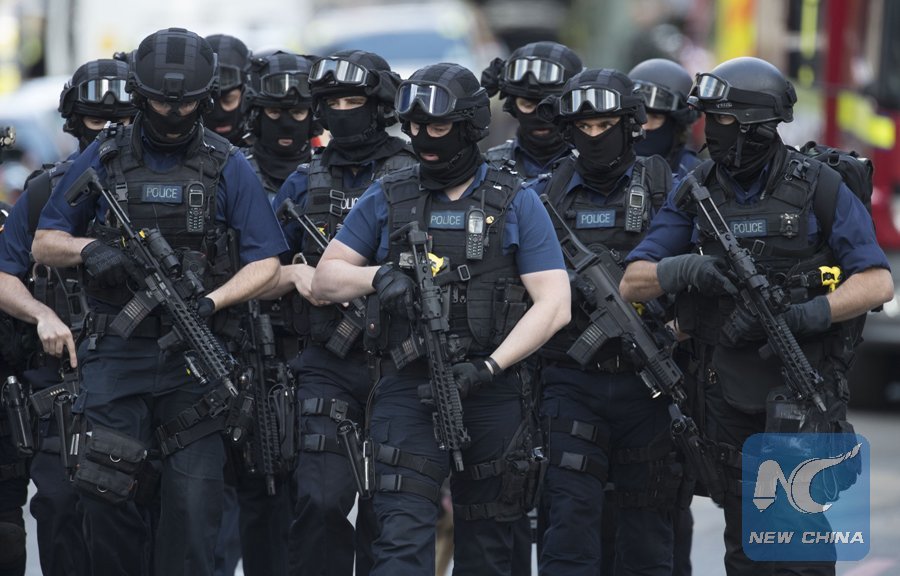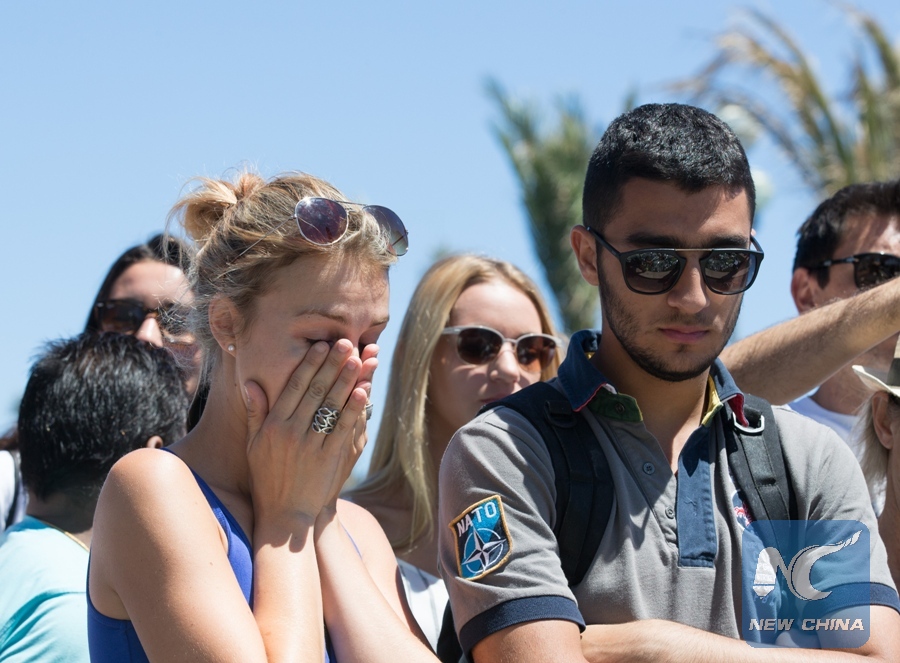
Toys, flowers and candles are placed on the avenue to mourn for victims in the terrorist attacks in the Las Ramblas area of Barcelona, Spain, Aug. 19, 2017. The Spanish government decided to maintain its anti-terrorism alert level at 4 but pledged to reinforce security measures at the same time, the Interior Ministry said Saturday in a statement. A total of 14 fatalities occurred in two terrorist attacks in the Spanish cities of Barcelona and Cambrils that also hurt about 126 people of 34 different nationalities. (Xinhua/Xu Jinquan)
By Ying Qiang, Ren Ke, Tian Dongdong
BARCELONA, Aug. 19 (Xinhua) -- Perhaps the latest terrorist attacks in Spain may drive us, in an unfortunate way, to have a thorough reflection on the profound causes leading to the recurrences of similar tragedies that we failed to avoid.
Double terrorist attacks on Thursday resulted in heavy casualties in Barcelona and Cambrils. As of the press time, at least 14 innocent people were killed and over 100 others injured, plunging the usually happy Mediterranean touristic cities into deep pain of sorrow.
Over one year ago, a similar attack also claimed by ISIS took place in Nice, France, another touristic Mediterranean city, killing at least 84 and injuring 50 others.
In the past year European countries have suffered a string of terrorist attacks, from Britain to France and Germany, and now to Spain. It reminds people of a question -- why those terrorist attacks could repeat rather than being prevented?

Armed police officers patrol near London Bridge after the terror attack took place on Saturday night in London, Britain on June 4, 2017. (Xinhua/UK OUT)
Indeed, those perpetrations were difficult to prevent. In Nice, attackers drove big truck into the crowd and in Barcelona it was a small van. In suburb of Paris it was a car that hit soldiers earlier this month.
And in many cases ordinary tools were used in terrorist attacks, like kitchen knife involved in Hamburg supermarket assault last month and a hammer in the perpetration at Notre Dame de Paris earlier this year.
Perhaps those perpetrators attacking Paris and London were in response to the anti-terror efforts by France and Britain, but attacks to Barcelona and Cambrils were only on the purpose of spreading hate and causing panic.

People gather to mourn victims of an attack in which a truck drove through crowds during Bastille Day celebrations in Nice, France on July 15, 2016, killing 86 people. (Xinhua/Xu Jinquan)
The anti-terror situation is now undergoing an important change. As French newspaper La Figaro wrote on Wednesday that from 2011 to 2016, a total of 5,000 Europeans went to the Middle East to join the so-called "jihad", and as ISIS is losing bases in Iraq, about 1,000 to 3,000 Europeans will come back home, where they may launch attacks.
In addition, the lone-wolf terrorist attacks have taken place more frequently. Those "lonely wolves" do not need any commands, nor do they have organizations. They target randomly-chosen areas, a way that is extremely difficult to prevent and make all European countries vulnerable to such risks.
As many terrorist attacks in Europe in recent years were launched by perpetrators who had been already European countries' nationalities, a thorough reflection is in need to analyze the political, economic and social soils that breed this trend.
Late French philosopher Ruwen Ogien told Xinhua in 2015 that it was Europe's own social economic environment that made the soil for extremism, together with the latest development of international situation.
Besides strengthening anti-terrorist efforts, European countries need to rethink why some people who feel lost and marginalized turn to expressing their complaints with extremist actions and spreading hate.
It is impossible to make changes in a short term, and it is also a difficult task. But without doing so, Europeans may have to get prepared for living with sporadic terrorist attacks, and learn to get accustomed to the unpredictable risks in future.

